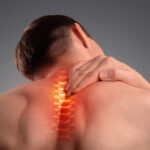
2. Dehydration
Dehydration refers to a condition where there is a deficiency of water in the body. Ideally, adult women’s bodies should have between 45 and 60% of water, while adult men should have between 50 and 65%. A person is said to be dehydrated when the total percentage of water in their bodies fluctuates below the aforementioned optimum ranges. The range differs for practicing athletes who should have 5% more water in their bodies to balance water lose due to rigorous activities.
Lack of water in the body interferes with the body’s metabolic process. Dehydration can occur as a result of extreme temperatures, exercise, inadequate hydration or certain diseases that cause rapid water loss from the body. Muscle spasm is among the several symptoms of dehydration that include fatigue, headache, dizziness, confusion, and muscle cramps. Mild cases of muscle spasm resulting from dehydration can be resolved with oral hydration while severe cases can only respond to intravenous fluid replacement.


